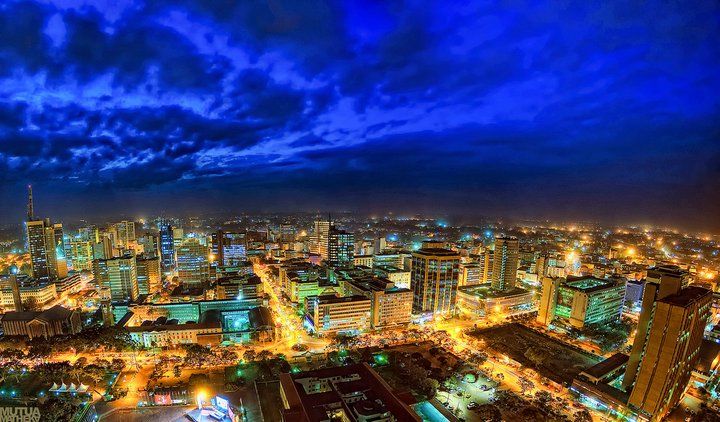Sorrow and Joy we live and we love

Places have a way of blossoming open right as one is about to leave them. Three days before I am to depart Nairobi it has revealed itself to me in the glory of a thorny rose.
I just came back from a two hour cab ride with a lovely man named Joseph. John’s African name is Jenga; he’d seen the wooden game but did not know what it was called until I told him. Jenga implies building in Swahili, one who will build great things. Joseph told me that his taxi company, which regularly takes in $15 per fare, requires its drivers to work 24-hour shifts and pays them $110 per month. John is 45, has three kids and a wife, and he seemed like a very smart man.
I was coming from drinks with a work friend Grace and a new friend Boris. Boris and I met serendipitously, when my friend Cary (who is in Vietnam) noticed he changed his number to a Kenyan one on Facebook. He came over to the office an hour later and we hit it off immediately. That kind of serendipity, that kind of openness to meeting new people, that’s what pushes life forward.
The next stop was an orphanage far across the city, which took about 45 minutes. We were going to visit my friend Yasmine, who came here from Australia to volunteer in the orphanage for two weeks and shoot a documentary. While volunteering, she fell in love with a tiny little baby. She can’t adopt until she has been here for three years, so she now lives in the orphanage.
My new friend Joseph Jenga and I walked into the orphanage, and neither of us were expecting what happened. Twenty adorable young children raced towards us, clinging to our clothing and asking us our names, telling us their names, asking about our clothes and are braces and whether we came with their friend Francis. I picked one up, I put one down, I didn’t quite know what to do. They were all orphans. We went into the next room and I saw Yasmin’s baby. To be honest I’d always thought she was a little crazy to change her life plans for a kid she didn’t know. But then I saw the baby, and the baby smiled. And Yasmine told me that the baby had been found, a week old, by the side of the road in a plastic bag. And the baby had a mother and that mother was my friend. I understood how you could change your life to become a mother.
Joseph and I left with a camera. We’d come to the orphanage because I have been trying to capture 100 hours of video tape to bring back to New York, and I only have one tape deck. The other FilmAid cameras broke, and Yasmine offered to lend me hers. “I don’t lend it to most people, you’re lucky,” she said…I guess it just felt right to her. I told her that she was allowing me to sleep this week and thanked her.
On the taxi ride home I thought about how tired I was, how I would never have enough sleep this week. Then I reoriented to where I was, looked around, felt my body in a car in Kenya and not inside my head…and the tiredness disappeared.
When I went back into the office I gave Joseph Jenga a $13 tip. It wasn’t much to me; it was three days pay to him. That didn’t seem fair. He told me that he was trying to support his kids, that he was going to leave the taxi company soon and find a new job. He asked me to keep him in mind if I heard anything. We exchanged numbers.
I’m capturing two tapes at once now. Yasmine’s camera is playing back the audio, which the tape deck didn’t. It’s a tape made in 2005, and refugees from Kakuma are sending video messages to new refugees from the tsunami. At least three of them say “I am a refugee here so I don’t have anything to give you, but I give you my love and support and I hope you can have strength in this time of great hardship.”
I believe in some moments the chaotic tangle of the universe opens up and it’s possible to see through to something else entirely. Those moments say to me, “Keep going…keep going.”
